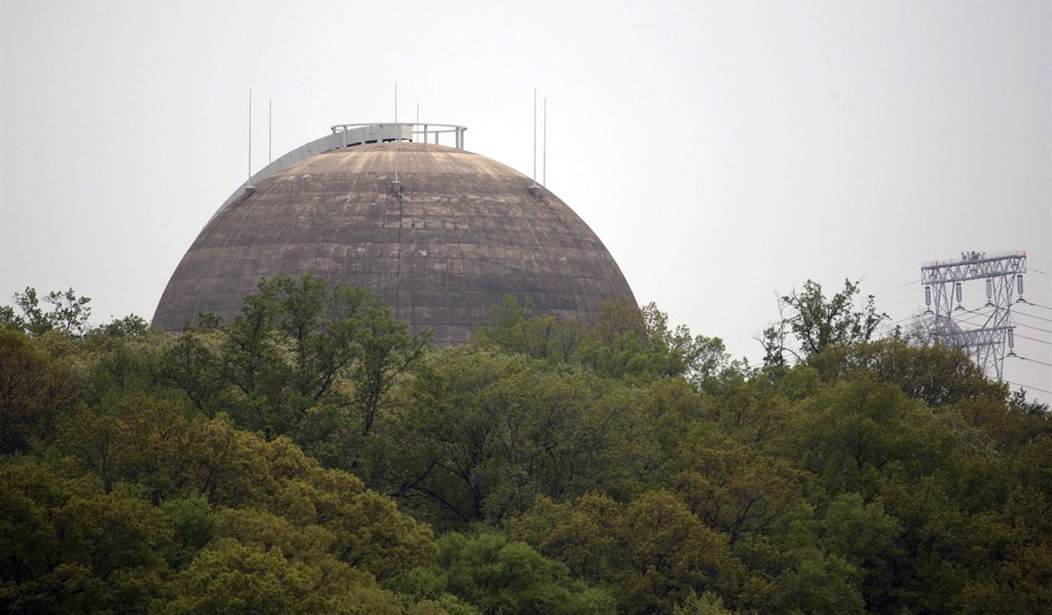I'm old enough to remember when the promise of nuclear power was fairly new. In the early 1960s, we could still dream of a world where unlimited, non-polluting energy would power airplanes, rocket ships, cars, and household appliances.
What happened to that optimism? Ignorance and fear after the 1979 accident at the Three Mile Island nuclear plant sabotaged it. Anti-nuclear Luddites spread misinformation about nuclear power plants while regulators panicked and piled on so many unnecessary rules it made building a plant — to this day — ridiculously expensive.
Reason's Zach Weissmueller explains.
The economics of nuclear power are undoubtedly challenging, but its advocates say that's primarily because of its thorny politics. The headache of building a new power plant is vividly exemplified by Georgia's Plant Vogtle. The first U.S. reactor built from scratch since 1974, the project turned into a nightmare scenario: It took almost 17 years from when the first permit was filed for construction to begin, it cost more than $28 billion, and it bankrupted the developer in the process.
"After Three Mile Island, what was considered to be in the best interest of the public was just reducing risk to as low as possible," says Adam Stein, director of the Nuclear Energy Innovation Program at the Breakthrough Institute. "It resulted in a huge volume of regulations that anybody who wanted to build a new reactor had to know. It made the learning curve much steeper to even attempt to innovate in the industry."
It's not just the federal government with its boot on the neck of the nuclear industry. States have piled on their own set of onerous regulations so that deep-blue states like New York and California have not only been denying power companies the opportunity to build new nuclear plants but also have been phasing out old plants long before their expiration date is reached.
Eric Dawson, co-founder of Nuclear New York, a group fighting to protect the nuclear power industry, explains that the closure of one nuclear plant in New York — Indian Point — resulted in the state being forced to burn 9% more energy-related CO2 emissions.
According to Dawson, nuclear power is "the most scalable, reliable, efficient, land-conserving, material-sparing, zero-emission source of energy ever created."
That's true, but it hardly matters. Reason and logic are not compatible with advocating against nuclear power. Spreading misinformation and fear-mongering is far preferable to truth-telling.
Despite the opposition, there remains some hope for the future of nuclear energy. Companies are actively developing next-generation nuclear technologies, such as small modular reactors and molten salt-cooled reactors, to minimize the risks associated with nuclear meltdowns and explosions. And some former nuclear opponents have become advocates, acknowledging it as a vital source of clean energy. The converts include the Environmental Defense Fund, the Natural Resources Defense Council, and even Rep. Ocasio-Cortez. The Biden administration has also demonstrated support for nuclear power, with the Department of Energy projecting a tripling of nuclear energy production in America by 2050.
Anti-nuclear activists, environmentalists, and politicians have crippled the only truly viable form of clean energy. But the long nuclear power winter might finally be coming to an end in America.
It will be hard to reprogram the American voter to realize that nuclear power is actually safe and far more efficient than wind or solar power generation. If we ever do, perhaps I'll finally be able to buy the nuclear-powered Cadillac I always dreamed of.










Join the conversation as a VIP Member